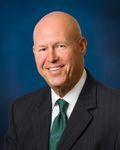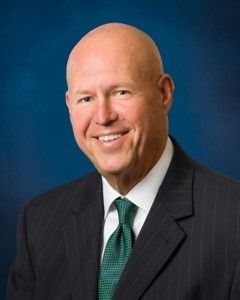If you work with clients who struggle with obesity and/or are desperate to manage their weight, you have likely found yourself feeling frustrated by your inability to reach them in a way that results in sustainable, healthy change.
You may feel like a lifeguard who has tossed a line to a drowning person, but she won’t grab it. Instead, she struggles and become increasingly panicked. You see the fear in her eyes as she gasps for air, but instead draws a mouthful of water. Exhaustion is taking over and all the while you are begging her to “just grab the line.” You know you can help her get to shore, which may mean the difference between life and death, but she has to grab the line. You can only extend the line to her.
Does this scenario strike a cord with you? Have you found yourself feeling a mixture of frustration, failure and possibly even remorse as your client, struggling with obesity, looks at you with fear in her eyes, even as you are assuring her that you are in it together, you will help and she just needs to follow the plan?
This scenario is also familiar to much of the medical community. In fact, the highly respected Massachusetts General Hospital has launched a training program engineered to teach doctors empathy. This is not a program designed to simply improve “bedside manner,” but, rather, to teach the skill of empathy.
Now, why would physicians, with their wealth of medical knowledge and skill (and very limited time) invest in learning empathy? Because they know that improved disease management and surgery outcomes depend on adherence and that recent studies have revealed that empathy improves adherence results significantly (Di Blasi et al., 2001; Halpern 2001; Stewart 1995; Gerteis et al., 1993).
So, why is empathy important to health and fitness professionals? As Dr. Cedric Bryant, Chief Science Officer at ACE, explains, “Healthcare is the ultimate team sport.” As physicians increasingly recognize the skill of empathy as the key to adherence, they will be more confident in working with health and fitness professionals who demonstrate and share their view of the skill of empathy. In seeking to learn this skill, you take a critical step toward positioning yourself as the type of well-qualified health and fitness professional health providers seek out to provide prevention and wellness intervention and adherence services.
ACE’s new Weight Management Specialty Certification is an effective way to learn the skill of empathy, along with other key tools and techniques for helping clients who struggle with overweight and obesity, including:
- What empathy is and, as importantly, what it is not
- The neuroscience of empathy and why and how it works
- How to use the BRIDGE method of empathy application
If you’re interested in leading clients to long-term weight management success through a balance of behavior change strategies, exercise and nutrition, check out ACE’s Weight Management Specialty Certification.
References
De Blasi, Z. et al. (2001). Influence of context effects on health outcomes: A systematic review. Lancet, 357, 757–762.
Epstein, R.M. and Back, A.L. (2015). Responding to suffering. Journal of the American Medical Association, 314, 24, 2623-2624.
Gerteis, M. et al. (1993). Through the Patient’s Eyes: Understanding and Promoting Patient-Centered Care. San Francisco: Jossey-Bass.
Halpern, J. (2001). From Detached Concern to Empathy: Humanizing Medical Practice. New York: Oxford University Press.
Stewart, M. (1995). Effective physician-patient communication and health outcomes: A review. Canadian Medical Association, 152, 1423–1433.




 by
by 








 by
by